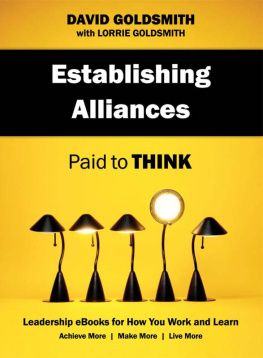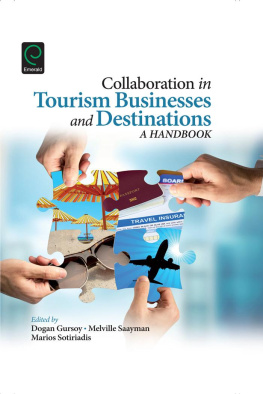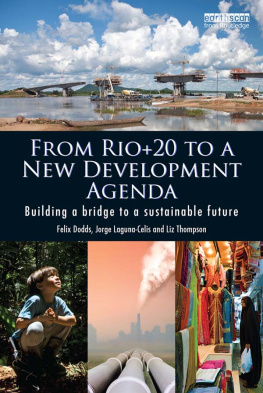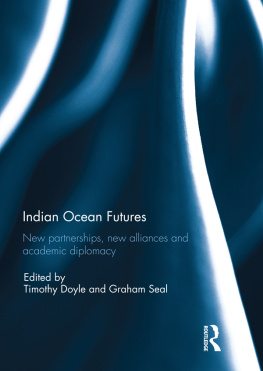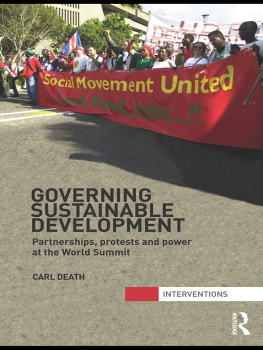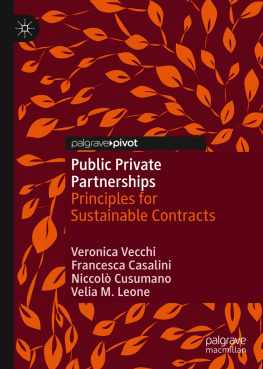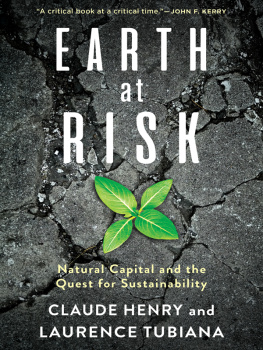Laurence Schwesinger Berlie - Alliances for sustainable development: business and NGO partnerships
Here you can read online Laurence Schwesinger Berlie - Alliances for sustainable development: business and NGO partnerships full text of the book (entire story) in english for free. Download pdf and epub, get meaning, cover and reviews about this ebook. year: 2010, publisher: Palgrave Macmillan, genre: Politics. Description of the work, (preface) as well as reviews are available. Best literature library LitArk.com created for fans of good reading and offers a wide selection of genres:
Romance novel
Science fiction
Adventure
Detective
Science
History
Home and family
Prose
Art
Politics
Computer
Non-fiction
Religion
Business
Children
Humor
Choose a favorite category and find really read worthwhile books. Enjoy immersion in the world of imagination, feel the emotions of the characters or learn something new for yourself, make an fascinating discovery.

- Book:Alliances for sustainable development: business and NGO partnerships
- Author:
- Publisher:Palgrave Macmillan
- Genre:
- Year:2010
- Rating:5 / 5
- Favourites:Add to favourites
- Your mark:
- 100
- 1
- 2
- 3
- 4
- 5
Alliances for sustainable development: business and NGO partnerships: summary, description and annotation
We offer to read an annotation, description, summary or preface (depends on what the author of the book "Alliances for sustainable development: business and NGO partnerships" wrote himself). If you haven't found the necessary information about the book — write in the comments, we will try to find it.
Alliances for sustainable development: business and NGO partnerships — read online for free the complete book (whole text) full work
Below is the text of the book, divided by pages. System saving the place of the last page read, allows you to conveniently read the book "Alliances for sustainable development: business and NGO partnerships" online for free, without having to search again every time where you left off. Put a bookmark, and you can go to the page where you finished reading at any time.
Font size:
Interval:
Bookmark:
Knowing how to remove the barriers and go beyond the paradigms which oppose us is fundamental for the relationship. This is one of the specific characteristics of corporateNGO alliances and depends a lot on the willingness of each partner and their desire to collaborate.
(Gloria Godinez, CEMEX, 8 May 2006 interview)
There is no denying that corporateNGO alliances are an innovative type of relationship and present opportunities to combine asymmetrical resources to find solutions to the complex challenges posed by sustainable development.
It is, for that matter, the rapid growth of the concepts of sustainable development and corporate responsibility, related to the parallel rise in power of the private and non-governmental sectors, which has enabled this type of alliances to develop.
CorporateNGO alliances have a series of specific characteristics, of which the following can be highlighted:
- They bring together partners showing multiple asymmetries; this justifies the name heterogeneous alliances, which has been given to them. Although complementary asymmetries are the basis of alliance value, constraining asymmetries can hold back the success of corporateNGO alliances.
- They are innovative and are entered into by pioneer organisations, which have few or no models on which to rely.
- They combine organisational objectives to social objectives.
- They are the subject of doubts and controversies.
- They only have a marginal place in the activities of the partners.
The management of corporateNGO alliances must be adapted to all these aspects. This requires a great capacity of adaptation, innovation and leadership from the partners.
NGObusiness alliances are special insofar as they are not only useful for the partners, but they also have a social value; that is, the alliance management should not be exclusively focused on internal questions and on the projects (in the strict sense of the word), but also on the significance of alliances as governance models and sources of environmental innovation. In this sense, the communication and learning aspects are fundamental for alliances to become actual tools which can foster changes in attitudes and behaviour in the partners and other social actors.
These alliances are established on undeniable strategic arguments (e.g., stakeholder pressure, partner complementarity), but they need the following three elements to develop successfully:
- the ability of the corporate sector and the non-governmental sector to overcome their prejudices and their conflicts
- demonstration of the results of present alliances
- an increase in the strategic value of sustainable development for companies.
Companies will make a commitment to sustainable development and alliances only if it makes business sense. This means that there is a role for all actors in the society in order for sustainable development to truly become a strategic asset for businesses and the economic system. Sustainable development cannot be carried out without companies, but they are not the only ones who should be involved. It is a responsibility which needs to be shared by everyone consumers, legislators, the media, and investors so that the system can offer a framework which rewards virtue.
Sustainable development will, therefore, be the result as much of pressures exerted on business as of voluntary actions carried out by companies. In this sense, pioneer companies who engage in partnerships, do so in a spirit of leadership; they seek to be the leaders of tomorrows economic system.
Many have already understood that sustainability is not a passing fashion but is bringing about profound changes in development paradigms.
Alliances were born in the 1990s in an era of ultra-liberalism, with a state which tended to withdraw from economic affairs. NGOs and companies have stepped into the void left by the state and are putting the emphasis on the development of voluntary initiatives. The financial crisis at the end of 2008 has called for the State to reclaim its role as a key player in economic affairs, but in no way does it question the relevance of corporateNGO alliances. Indeed, the crisis stresses the need to instil ethics and sustainability in the economic world, and it will certainly be those who have first undertaken critical thinking and appropriate changes that will be best able to assume leadership roles in the future.
Established: 2001
Managers:
At BirdLife International: Jonathan Stacey, manager of the alliance with Rio Tinto
At Rio Tinto: Sarah Basden, manager of alliances with NGOs
The partners
Rio Tinto
The Rio Tinto Group is composed of Rio Tinto plc (headquarters in London) and Rio Tinto Limited (headquarters in Melbourne, Australia). When we refer to Rio Tinto, we refer to the group combining both structures.
Rio Tinto is a world leader in finding, mining and processing the earths mineral resources (Rio Tinto, The Way We Work, 2003). The groups main products are aluminium, copper, diamonds, energy products (i.e., coal, uranium), gold, industrial minerals (i.e., borax, titanium dioxide, salt, talc, zircon) and iron ore.
Rio Tinto is active in more than 40 countries, with a strong presence in Australia and North America and important operations in Latin America, Asia, Europe and South Africa.
Turnover: $7.3 billion USD in 2006
Employees: 35,000 in 2006
These include alliances with the following NGOs:
- Earthwatch (since 1996, in particular within the framework of the Corporate Environmental Responsibility Group)
- Fauna and Flora International (since 1999)
- Kew Gardens, London (since 2000)
- Eden Project, Cornwall, UK (since 2002)
BirdLife International
BirdLife is a network of more than 100 autonomous environmental NGOs present in more than 100 countries. This network is managed by the international office of BirdLife, located in Cambridge, UK. BirdLife is an authority on endangered species of birds, and is one of the most important NGOs in terms of biodiversity conservation.
The goals of BirdLife are as follows:
- to prevent the extinction of all bird species
- to maintain, and if possible, to improve the conservation status of all bird species
- to protect and, where necessary, to improve and extend important bird sites and habitats
- to help, through birds, to conserve biodiversity and improve the quality of life of people
- to integrate bird conservation and sustainable development.
By focusing on birds and their habitats, BirdLife helps improve the quality of life for birds, wildlife in general and people.
Partnerships with other companies:
- British Petroleum (BP), London (since 1990).
- RMC Group, Egham, UK: The partnership with RMC Group was less strategic than that developed with Rio Tinto. RMC Group was acquired by CEMEX in 2005.
- CEMEX, Monterrey, Mexico (since 2007).
It was Rio Tinto who initiated the partnership.
In 1996, Rio Tinto conducted research on the strategic issues which could affect the groups commercial perspectives in the medium-term and long-term. One of the questions raised by this study was What do our stakeholders expect of us? Concern for biodiversity was one of the aspects brought to light by this study. Societys expectations concerning the mining industry include the reduction of its ecological impact, support for local development and upkeep of cultural and historical values.
Font size:
Interval:
Bookmark:
Similar books «Alliances for sustainable development: business and NGO partnerships»
Look at similar books to Alliances for sustainable development: business and NGO partnerships. We have selected literature similar in name and meaning in the hope of providing readers with more options to find new, interesting, not yet read works.
Discussion, reviews of the book Alliances for sustainable development: business and NGO partnerships and just readers' own opinions. Leave your comments, write what you think about the work, its meaning or the main characters. Specify what exactly you liked and what you didn't like, and why you think so.

